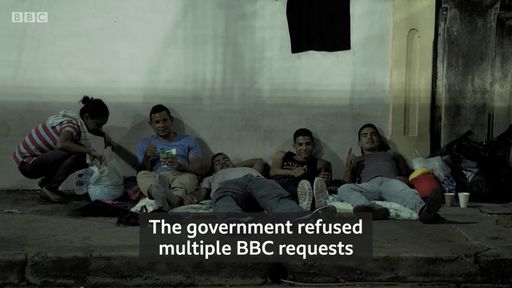(Trinidad Guardian) A social media standoff has emerged between Prime Minister Dr Keith Rowley and British High Commissioner Tim Stew over the Prime Minister’s decision to write the British government on the contents of a documentary, which Dr Rowley contends has misrepresented Trinidad and Tobago.
On Monday, Rowley criticised the documentary stating that it misrepresented the government’s treatment of Venezuelan migrants.
He said that he intended to write the British government concerning the 15-minute report, which was available to watch on social media in the past week.
In a social media post on Tuesday, the High Commissioner said, “The Government (of Trinidad and Tobago) have brought to my attention a BBC documentary on Venezuelan migrants. As I have said, the UK’s commitment to freedom of expression means that the UK media, including BBC, are independent of the UK Government.”
However, the Prime Minister took to social media to respond.
He said, “Independent? The BBC gets billions of pounds from the UK Government to carry on their business. They mirror and reflect British Government policy. The UK Government determines and causes all television users to pay a licence fee to them. They send coded messages around the world for the British Government. That is not the response we want from him. He must respond to whether the BBC presented our Venezuelan situation in a truthful and professional manner.”
On Monday, the Prime Minister also claimed he was not aware that BBC attempted to contact him or any member of his government concerning the situation.
“I don’t know any BBC person had any difficulty – if their motive was honourable- to speak to any government member including myself; I know of no such approach, I’ve heard none of the ministers speak about. This came like a bolt out of the night,” he said.
Despite the Prime Minister’s statements, the BBC is standing by its stance that it attempted to contact members of the government for the documentary The Displaced.
Guardian Media contacted both the journalist Ashley John-Baptiste and the videographer for the clip Olivia Lace-Evans concerning the documentary on Tuesday. They both referred our questions to the BBC’s Head of Communications Paul Rasmussen.
In response to Prime Minister’s statements, the BBC said, “We stand by our journalism. The estimated number of Venezuelans in Trinidad was reported by UNHCR, and has been corroborated in multiple reports. We reached out to the government multiple times for interview both before reporting in Trinidad, and while on the ground, but were declined. The thrust of this series is about the life of those that are displaced and how they see life. This is the first of several reports from around the world.”
The documentary has received mixed reviews from the public with many questioning the decision by the BBC to interview Kia “Ranking Boss” Hosein on the issue.
Hosein had been a part of an anti-migrant protest on the last day of the Venezuelan registration on June 14.
Rowley questioned why the BBC allowed themselves to be a part of their agenda during his press conference on Tuesday.
However Venezuelan activist Sofia Figueroa-Leon said she was baffled by the Prime Minister’s stance as much of what was covered in the documentary had been in the public for some time.
“I really do not think it’s a skewed misrepresentation because the information BBC gets is what we as citizens of Trinidad and Tobago are given by our government. Even the Central Bank governor gave several figures including how much it would cost Trinidad and Tobago to have the Venezuelan migrants in this country, to which our Minister of Finance said he was wrong. I really don’t understand what is the anger,” Figueroa-Leon said in a phone interview with Guardian Media.
She said the government had been doing work to help the migrants and as such, she did not understand the approach taken by the Prime Minister, “I am baffled. At the end of the day, the government does what it can do to help and they have done what they can to help the migrants. So if you know you are helping, why are you so upset, why are you so angry?”






